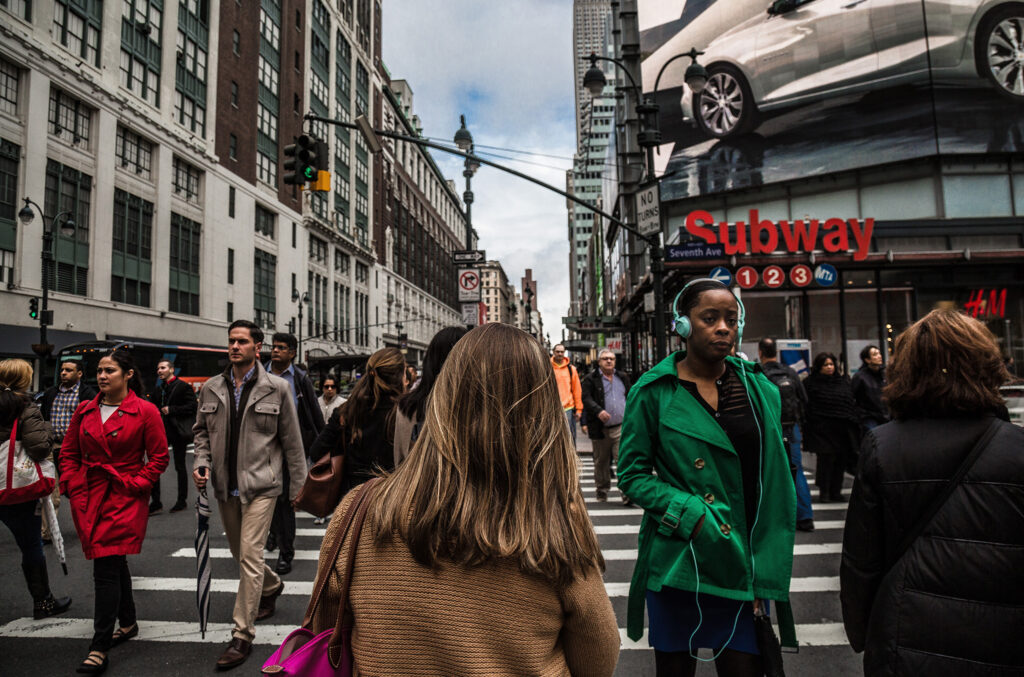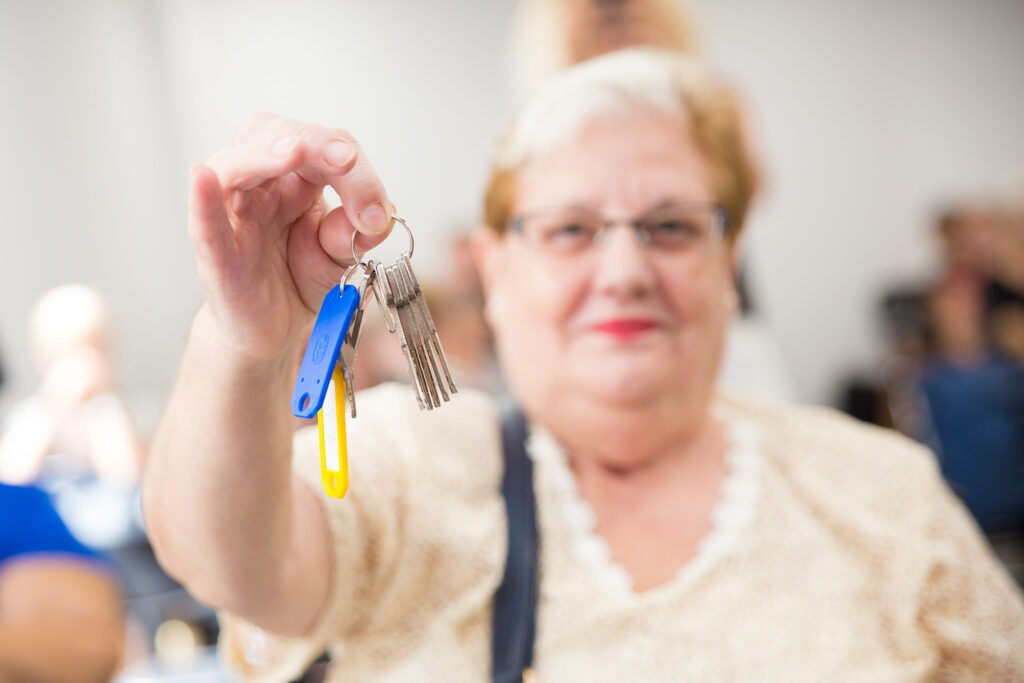Definancialising the housing sector
A dysfunctional urban agenda
We are living a global housing crisis. Though experiences differ between cities, everywhere has seen a shift of paradigm. Social policies and state interventions no longer provide adequate accommodation to all citizens. Instead, housing became first a commodity and then a financial asset in the global market.

When housing becomes a tradable asset, through the process of commodification, financialisation turns homes into vehicles for global investment, with cash flowing through intricate chains of wealth production. The result: overvalued housing markets that price residents out of their own homes. This financialisation process is dominated by international corporations and private equity firms, but it is also strongly anchored in local markets, and affected by the actions – or inaction – of local governments.
The commodification and financialisation of housing has accelerated over the last two decades as governments sell off public social housing, and land for private development, while also retrenching welfare systems.

The pandemic sparks new housing finance challenges
Global real estate market expansion, fuelled by mortgaged-homeownership, contributed to the financial crisis of 2008. Since then, financial markets have evolved and readapted their capitalist extraction strategies, with many citizens continuing to suffer from the predatory approaches of large investors. The COVID-19 pandemic poses additional challenges in terms of financialisation and accessibility to adequate housing.
With the world facing its deepest recession since WW2, housing markets are dynamically changing. Prices have continued to rise in the richest countries, according to OECD figures. In Italy, one of the countries worst hit by the pandemic, industry research shows the real estate market closed in 2020 with over EUR 8.6 billion in transactions, which, although about 30% lower than in 2019, is at similar levels to 2018 – and still above the 10 year average.
By causing job losses and economic insecurity, COVID-19 has sparked a rise in distressed real estate, when homeowners are unable to keep up mortgage or tax payments and lenders sell properties below market value. Meanwhile, investors with liquidity now have a plethora of opportunities to buy distressed real estate assets at low cost. And, as former UN rapporteur Leilani Fahra warned in 2020, this pool of low cost ‘assets’ could increase vastly when temporary COVID housing payment relief comes to an end. Renters and mortgagees will risk eviction if they are unable to pay their debts or housing costs after the pandemic.

The onset of the coronavirus pandemic in 2020 prompted governments at all levels, including cities, to halt housing exclusion at an unprecedented pace as a precaution against the spread of the disease. People most at risk were supported temporarily with measures such as rental freeze, eviction bans, mortgage forbearance, and emergency accommodation. However, to ensure lasting access to housing for all, cities need to make long-term changes. So how can local administrations tackle accelerating commodification and financialisation of their real estate markets as a step towards housing justice? Cities are not solely responsible for adequate housing: their ability to act depends heavily on other factors, such as national policies on public social housing and welfare. Still, certain European cities are seeking ways to encourage fair housing finance, based on the belief that people’s homes are not a tradable asset: housing should be completely detached from finance.
Inspiring case studies
These examples of cities looking for innovative strategies to definancialise the housing sector are selected from UIA projects and URBACT networks, and from other experiences shared during the ‘Cities engaging in the right to housing’ initiative.
Even practices dating from before COVID-19 remain a source of reference and inspiration for change.
Barcelona
Right to Housing Plan
Social renting housing made up only 1.5% of homes in Barcelona in 2017. To address this shortage of accessible housing, during the government of Barcelona en Comù, an activists-based municipalist platform, the city launched a Right to Housing Plan 2016-2025 with a broad and promising agenda.
Barcelona is following two main lines of action against speculation. Firstly, the city’s acquisition – and rehabilitation – of privately-owned housing units under the management of the Municipal Institute of Housing and Rehabilitation (IMHAB).
And secondly, a Rental Housing Pool mechanism to facilitate bilateral agreements between homeowners and the city. This allows use of properties with affordable rents, with incentives for the private owners, such as guarantees of rental payment and renovation subsidies – as well as administrative support. It also allows for a cession programme, where the landlord temporarily transfers the right to use their property to a third party, like the Habitat 3 foundation dedicated to social housing in the Catalan region, in exchange for incentives.
These measures, although designed to curb speculation, are not always considered efficient by local activists, as the public authorities end up buying properties with public funds from those corporate landlords who caused the foreclosure and bought distressed assets for their own profit.
Ghent
A recurring fund to improve housing for ‘captive residents’
Ghent (BE) suffers from a lack of affordable, quality housing for people with low income. In Ghent, 15.5% of inhabitants live in poverty, and housing solutions are limited. The affordable market segment for low-income citizens is shrinking quickly. As a result, Ghent counts 10 000 ‘captive residents’, stuck in poor living conditions – in 6000 houses that are unsafe, of poor quality, not energy-efficient and not adapted to people’s specific physical needs.
The ICCARUS project at UIA adopted by the municipality of Ghent is to renovate 100 houses of ‘captive residents’. A starting capital of EUR 30 000 is provided for each renovation. Before, during and after the renovation process, ‘captive residents’ will be offered technical, financial, administrative and social support.
Making this renovation scheme possible is an innovative financial instrument: a recurring fund. This means public finance is not only used for a limited group, but can be reinvested to fight this key urban challenge. This project will create, shape and optimize this financial policy instrument.
Mataró
A city-managed tenants’ cooperative
There is a dramatic shortage of affordable housing in the city of Mataró (ES), where rents have risen by 27% since 2016. With just 265 units, the city’s social housing is far from meeting demands: 1400 households are currently on the waiting list. Meanwhile, some 3500 properties sit empty because their owners do not have the resources to renovate them, or are afraid of tenants not paying their rents.
The idea of the UIA project ‘Yes We Rent!’ is to breathe life back into empty properties that are off the market, generating a housing stock accessible to medium income households. By offering guaranteed rents, as well as financial and organisational support to renovate properties, the project will incentivise risk averse owners to rent to the affordable housing scheme at below market prices. It will also be able to expand this affordable housing stock using part of the benefits. Additionally, ‘Yes We Rent!’ tests an organisational model of a multi-stakeholder coop, which can be publicly funded and controlled, while drawing on the empowerment and self-management potential of cooperatives. Tenants will be trained and incentivised to engage in self-help, empowerment, joint development of housing related services, and acquirement of new flats.
Vienna
Despite representing a unique example of a city with long-standing public housing policies, Vienna (AT) is still not immune to speculation in the housing sector.
“Vienna saw a growing interest of international investors for land suitable for housing which led to the increase of prices. Within a few months Vienna reacted: a new regulation limits the access of investors to real estate which is potentially interesting for affordable housing,” Josef Ostermayer, Director of Sozialbau AG, told the 2018 Housing for All conference, in Vienna.
The Vienna Provincial Government adopted an amendment to the Vienna Building Law (Bauordnung). It stipulates that buildings in zoned, subsidised residential areas, known as geförderter Wohnbau, must predominantly meet the criteria of the law for subsidised and refurbished housing.
The proportion is currently > 50%, but will be raised to two-thirds. This means that the purchase price for the land and rent is capped, and the flats cannot be sold for 40 years.
The law, which went into effect January 2019, has made land speculation in Vienna practically impossible.
Watch the Housing Fair Finance Web Conference and learn more about it.
Berlin
Vorkaufsrecht- Right of first purchase (or refusal)
In the years after German reunification, Berlin sold 220 000 formerly state-owned housing units, including 64 000 in 2004 alone. The city is run by a three-party coalition, open to dialogue with social movements and citizens’ initiatives. Berlin also counts on a series of national and local instruments to regulate its real estate market, from rental caps to anti-expulsion protection. These include restrictions on works that aim to increase the value of buildings in designated areas facing gentrification.
The Vorkaufsrecht, or ‘right of first purchase’ is a powerful tool for preserving the social mix of protected neighbourhoods. If a homeowner in a protected area is about to sell their property, the district has two months to make an offer and enter into a contract. Although this tool can be used nationwide, it is seldom used by cities. In this way, from 2015 to 2018, Berlin’s districts exercised the right of first purchase for 664 apartments in favour of a third party, generally a state-owned housing association.
These measures, however, are not yet curbing Berlin’s real estate market. In 2018 activists launched a Mietenvolkentscheid initiative to collect the 20 000 signatures needed to request a public referendum to ban property sales to large real estate groups, and enable forced expropriations of properties for public housing. The request, determined legally admissible by the city-level government in September 2020, is to bar companies, such as Deutsche Wohnen, from owning more than 3 000 apartments in Berlin alone. Estimates forecast the recovery of some 200 000 housing units. All eyes are on this ground-breaking proposal as negotiations unfold.
FOCUS ON:
Housing Fair Finance – A talk with Raquel Rolnik
This episode of the series “Cities engaging in the Right to Housing” explores the financial sector’s influence on housing. In this podcast, Raquel Rolnik, professor at the University of São Paolo and former UN Special Rapporteur on Adequate Housing describes the process of housing financialisation and invokes policies to counter its influence and to secure affordable housing.
“We can learn from the measures that we saw at the beginning of the pandemic: those interventions in the private housing market, with rent freezes and regulations, were unthinkable before. They created a political opening.” Ralquel Rolnik, February 2021
Key takeaways
Based on reflexions over the course of the URBACT-UIA ‘Cities engaging in the right to housing’ initiative, here is an outline of key actions governments can take to foster definancialisation of the housing market:
- Put a halt on the sale of publicly owned stocks and land to private developers.
- Demand transparency of real estate transactions.
- Re-municipalise, buying back privatised properties for public social housing.
- Invest EU, national and public funds into public social housing.
- Involve a large variety of communities and stakeholders, including tenant unions, social movements, public authorities and developers in consultations.
- Deploy old and new legal measures in order to increase and secure units for social, affordable and adequate housing purposes. These include: right of first refusal; expropriation for public purpose; supporting reuse of vacant properties; creation of tenants’ cooperatives; and providing support for public procurement, self-determination and self-construction of community-led housing.
- Consider measures of rent-stabilisation, rent-control, rent-regulation, unlimited rent contracts, rental freeze, and solidarity funds for people unable to pay their rents.
More inspiration
Housing Fair Finance
A talk with: Raquel Rolnik, former UN Special Rapporteur on Adequate Housing